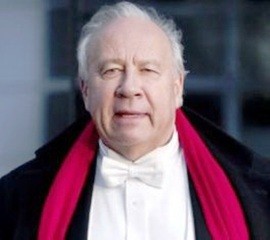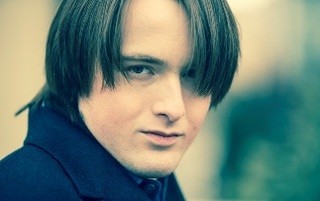|
Back
New York
David Geffen Hall, Lincoln Center
11/19/2015 - & November 20*, 21, 2015
“Rachmaninoff: A Philharmonic Festival”
Sergei Rachmaninoff: Russian Theme, Opus 11, No. 3 (Orchestrated by Arkady Leytush) – Piano Concerto No. 4 in G Minor, Opus 40 – Symphony No. 1 in D Minor, Opus 13
Daniil Trifonov (Piano)
New York Philharmonic Orchestra, Neeme Järvi (Conductor)

N. Järvi (© Courtesy of Järvi Festival)
DIRECTIVE TO COMMISSAR VLADIMIR PUTIN: 1. Get rid of your stodgy old Russian National Anthem; 2. Put Neeme Järvi on the podium with the New York Philharmonic Orchestra; 3. Have somebody write words for the first 60 measures from the Finale to Rachmaninoff’s “First Symphony.” (I’ll do it for a hefty fee); 4. Perform that music as the “new” National Anthem. 5. Conquer the world.
Actually, better that Putin not read my suggestion. For those majestically bombastic measures, as played yesterday afternoon in the second week of the Rachmaninoff Festival, knock the hell out of any sanctimonious anthem. As the world knows, the original conductor, Alexander Glazunov, was inebriated when he conducted, it was panned, and Rachmaninoff didn’t write any more music for a decade. But listening to that “Fiery fast” movementt–as well as the three other sections of the 45-minute work–we have a young genius, far far more “Russified” in his music those myopic nationalist composers gave him credit for.
That ill-fated First Symphony deserved resurrection (or in the case of the Phil, a creation, since it had never been played since its 1895 writing). But for this listener, it was the stellar part of the program. One can say that Rachmaninoff was created a genius in his earliest composition, and didn’t change a single thing for the rest of his life. If the Symphony sounds like his final work, Symphonic Dances, written almost half a century later, we can live with it.
For this symphony packed excitement (a mysterious zipping opening, repeated in two of the other movments), some beautiful lyrical melodies, a few chordal themes which reflected the Russian Orthodox Church, and of course his signature tune, the Dies Irae.
The work is frequently played by Russian-born conductors like Ashkenazy. But an Estonian like the great Neeme Järvi certainly can lay claim to the heavily Russian themes in the first movement, and the great martial notes of the finale. He didn’t whip them into a frenzy at all, but nothing was lackadaisical here, even in the over-lush slow movement. The piece is as good as any of the other symphonies, and that finale would be a triumph for any composer.
The other major work was another virtually unknown work, the final Concerto. The Phil premiered it a quarter-century after it was written, and it was last played here 11 years ago. True enough, while it is a spacious work, with marvelous chances for the soloist, only the second movement stands out.

D.Trifonov (© Dario Acosta)
Though that hardly deterred Daniil Trifonov, who is here for the entire Rachmaninoff month, from dashing through its complexities. His arpeggios, his legato dashings up the keyboard, his faultless grace and tonal balances are something to marvel at.
But not even Mr. Trifonov could feature a Rachmaninoff tune. We might decry those melodies as being a bit slushy, but they are certainly missed.
Fortunately, the Concerto features one of the most brilliant tunes of all time, known as Three Blind Mice. Three downward notes...and that’s it. Rachmaninoff used this like Mahler used the funereal Frère Jacques in his own First Symphony. No canons, no ridiculing, no parody, simply taking this melody and swelling it, deflating it, giving it both mystery and a sort of awkward charm.
If the two major works were rare, the opening was never been heard before. Rachmaninoff had composed a piano suite of six duets in 1894. The American-Russian conductor Arkady Leytush has orchestrated dozens of chamber pieces, from Mussorgsky to Duke Ellington. And his orchestration of this real Russian melody, “The Barge-Haulers” was given the full Russian treatment just three years ago. Low bassoon opening, lush string chords, a full horn solo.
Only five minutes long, moments of Slavic nostalgia coloring the Russian composer whose own orchestral colors this month are already heightening his reputation.
Harry Rolnick
|